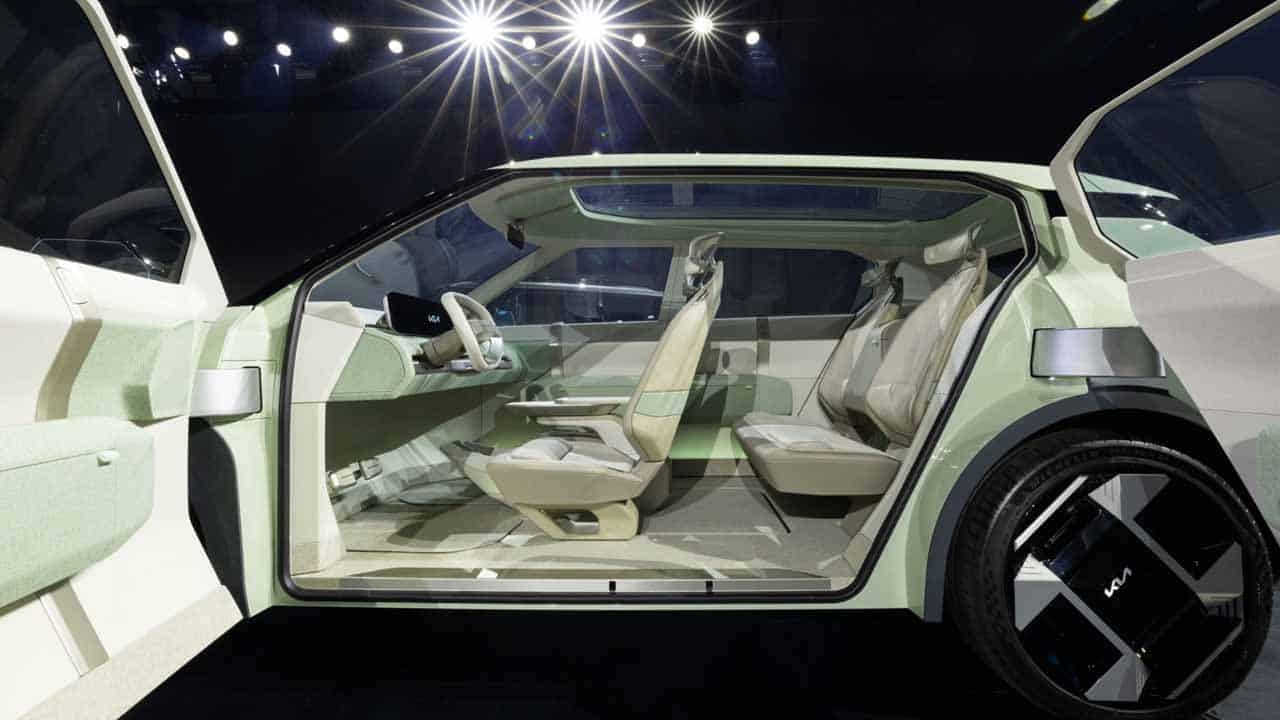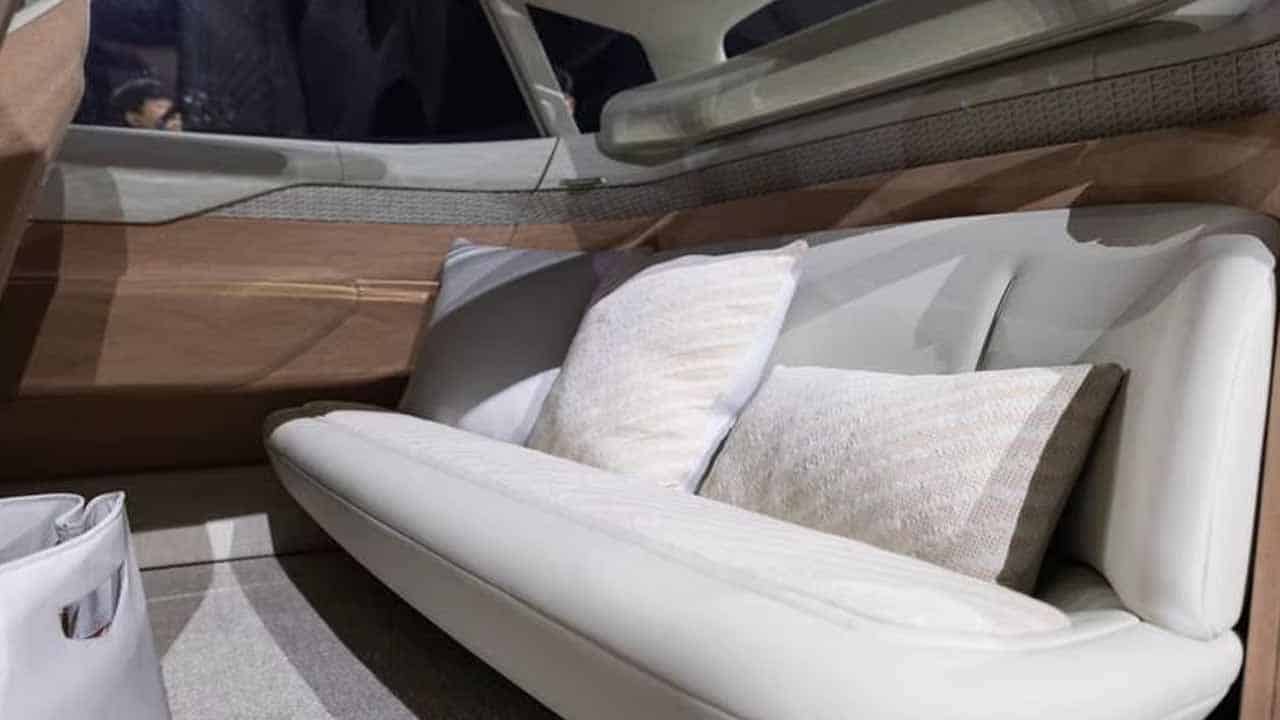KIA has introduced a compact electric sport-utility vehicle, along with two concept electric vehicles, as part of its strategy to expand its lineup with more affordable options aimed at cost-conscious drivers.
Kia’s new electric model, the EV5, was unveiled during an event known as “EV Day” held on Thursday. In the Chinese market, the standard version of the EV5 will be equipped with a 64-kilowatt-hour battery, providing a range of 530 kilometers on a single charge. The long-range variant will feature an 88-kilowatt-hour battery, offering an impressive 720 kilometers of driving range per charge.

For the South Korean market, the EV5 will come with slightly smaller battery options, adjusted to meet specific regional demands.
The EV5 boasts a modern interior with two 31-centimeter screens for instrument displays and infotainment, as well as a 12.7-centimeter climate control display.
In the Chinese iteration of the vehicle, a unique feature includes a front bench seat, and the rear seat can be conveniently folded flat to create a comfortable bed-like space. Additionally, the EV5 is equipped with a 4-liter refrigerator and a warming unit, perfect for storing and keeping food and beverages at the desired temperature.
Production of these vehicles is expected to commence in factories located in both China and Korea, with an anticipated start date of around 2025.
Kia also showcased two intriguing concept cars during the event: the EV3, a compact version derived from its flagship EV9, and the EV4, a four-door sedan that exudes a sporty aesthetic.
Kia’s latest lineup, which includes the EV5, EV3, and EV4, is a crucial part of the company’s strategy to introduce smaller electric vehicles priced between $35,000 and $50,000, with top-end models reaching up to $80,000. This move is aimed at accelerating the widespread adoption of battery-powered cars.

Last month, Kia introduced its most affordable electric vehicle, the single-seat Ray, starting at $20,000, exclusively available in South Korea.
In the competitive landscape, Tesla launched its Chinese-made Model Y SUV in Korea earlier this year, with a starting price of around 57 million won ($42,550). With government subsidies factored in, the price can be reduced to about $37,000 in Seoul and even as low as $30,000 in certain cities offering additional incentives for electric vehicles.
Kia views smaller electric vehicles as a critical entry point for customers seeking more affordable electric cars with convenient charging options. The company’s CEO, Ho Sung Song, emphasized this during the EV Day event in Yeoju City, located southeast of Seoul. Kia has ambitious plans to sell 1.6 million electric vehicles by 2030.
Kia intends to establish eight production facilities by 2025 to achieve this target. In Europe, the company will focus on manufacturing small- and medium-sized EVs, while mid- and large-sized vehicles will be produced in China. In India, Kia will concentrate on developing strategically designed EV models tailored to emerging markets, although specific details were not disclosed.
Kia is actively exploring ways to further reduce the prices of their electric vehicles (EVs). CEO Ho Sung Song emphasized the importance of this effort, aiming to make EVs available at or below the $25,000 price point in the market. To achieve this goal, Kia is considering innovative sales strategies, such as selling vehicles without batteries, which customers could then rent separately.
The cost of batteries, the most significant expense in an EV, is anticipated to decrease to around $99 per kilowatt-hour by 2025 as battery technology advances and new lithium reserves are developed. A report from Goldman Sachs Group analysts, led by Kota Yuzawa, published on October 4, suggests this trend. As battery costs decline, Kia’s stock has been upgraded to a “buy” rating due to improving profit margins.
In the electric vehicle market, Kia and its affiliate, Hyundai Motor, have collectively sold approximately 374,000 EVs during the first eight months of 2023, ranking seventh globally according to a report from SNE Research. However, their combined market share in the global EV market, which includes electric and plug-in hybrid vehicles, has decreased to 4.3% in the current year from 5.4% in 2022, largely due to the strong growth of China’s BYD, as noted by the research group.
Mr. Ho also mentioned that Kia might introduce a compact model, the EV2, in Europe. The European Union has initiated an investigation into China’s EV subsidies, which could potentially lead to tariffs on cars made in China and could be advantageous for South Korean automakers. He described the EV2 as a unique and significant model tailored to the European market, with a distinctly European style, and confirmed that it would be manufactured in Europe.






